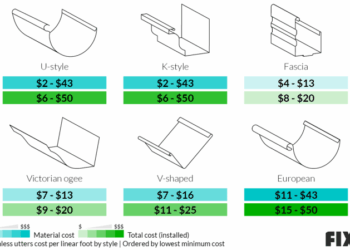In the realm of business finance, the year 2025 poses unique challenges and opportunities. This guide delves into the top mistakes to steer clear of, providing valuable insights to safeguard your financial health and success. Let's navigate through the intricate world of business finance together.As we explore the common pitfalls and missteps that can impact a company's financial well-being, we aim to equip you with the knowledge needed to make sound financial decisions in the upcoming year.
Common Business Finance Mistakes
When it comes to managing finances in a business, there are several common mistakes that companies often make. These mistakes can have a significant impact on the overall financial health of a company and even lead to business failure if not addressed promptly.
Failure to Create a Realistic Budget
One of the top mistakes that businesses make is failing to create a realistic budget. Without a clear budget in place, it becomes challenging to track expenses, allocate resources effectively, and plan for future growth. This lack of financial planning can lead to overspending, cash flow issues, and ultimately, financial instability.
Ignoring Cash Flow Management
Another common mistake is ignoring cash flow management. Businesses may focus too much on revenue and profits, neglecting the importance of managing cash flow effectively. Poor cash flow management can result in missed opportunities, increased debt, and the inability to cover essential expenses, putting the company at risk.
Relying Too Heavily on Debt
Some businesses make the mistake of relying too heavily on debt to finance their operations or expansion. While taking on debt can be necessary at times, excessive borrowing can lead to high interest payments, financial strain, and limited flexibility in the long run.It's essential to strike a balance between debt and equity to maintain a healthy financial position.
Lack of Financial Planning
Financial planning is a crucial aspect of running a successful business. It involves setting financial goals, creating a budget, monitoring cash flow, and making strategic decisions to ensure the financial health of the company.Effective financial planning helps businesses anticipate and prepare for potential challenges, seize opportunities for growth, and ultimately achieve long-term sustainability.Without proper financial planning, businesses may struggle to make informed decisions, face cash flow issues, and fail to reach their full potential.
Strategies for Effective Financial Planning
- Set clear financial goals: Define short-term and long-term financial objectives to guide your business decisions.
- Create a detailed budget: Track income and expenses, allocate resources effectively, and adjust the budget as needed.
- Monitor cash flow: Keep a close eye on cash inflows and outflows to ensure the business has enough liquidity to operate smoothly.
- Use financial forecasting: Project future financial performance based on historical data and market trends to make informed decisions.
- Seek professional advice: Consider working with a financial advisor or accountant to get expert guidance on financial matters.
Outcomes of Businesses with Solid Financial Planning
- Stability and growth: Businesses with solid financial planning are better equipped to weather economic downturns and capitalize on opportunities for expansion.
- Improved decision-making: Financially sound companies can make strategic decisions based on data and analysis, leading to better outcomes.
- Investor confidence: Well-planned finances instill confidence in investors, lenders, and stakeholders, making it easier to secure funding for growth.
- Risk mitigation: Effective financial planning helps businesses identify and mitigate risks, reducing the likelihood of financial crises.
Mismanagement of Cash Flow
When businesses fail to effectively manage their cash flow, it can have serious repercussions on their financial health
. Poor cash flow management can lead to an inability to pay bills on time, missed opportunities for growth, and even bankruptcy.
Designing a Cash Flow Management Strategy
- Monitor cash flow regularly: Keep track of both incoming and outgoing cash to ensure there are no surprises.
- Set up cash reserves: Establish an emergency fund to cover unexpected expenses or periods of low cash flow.
- Negotiate better payment terms: Work with suppliers and clients to optimize payment schedules and improve cash flow.
Role of Forecasting in Maintaining a Healthy Cash Flow
Forecasting plays a crucial role in maintaining a healthy cash flow by helping businesses anticipate future cash needs and plan accordingly. By forecasting sales, expenses, and other financial factors, businesses can proactively manage their cash flow and make informed decisions to mitigate potential cash flow issues.
Ignoring Technology Advancements
Ignoring technology advancements in business finance can have significant implications on financial decision-making. Businesses that fail to keep up with technological changes may face various financial risks and miss out on opportunities for growth and efficiency improvements.
Impact of Technology on Financial Decision-Making
Technology plays a crucial role in enabling businesses to make informed financial decisions. From advanced analytics tools to automated processes, technology provides valuable insights that can help businesses optimize their financial strategies. For example, financial software can analyze data in real-time, allowing companies to identify trends, forecast future performance, and make strategic decisions based on accurate information.
Financial Risks of Not Investing in Up-to-Date Technology
Failing to invest in up-to-date technology can expose businesses to a range of financial risks. Outdated systems may lead to errors in financial reporting, compliance issues, and inefficiencies that can result in increased costs. Moreover, competitors who leverage technology advancements may outperform those who do not, putting the business at a competitive disadvantage and potentially leading to loss of market share.
Streamlining Financial Processes and Improving Efficiency
Technology can streamline financial processes and improve efficiency in various ways. For instance, automation tools can reduce manual data entry and streamline workflows, saving time and reducing the risk of human error. Additionally, cloud-based solutions enable remote access to financial data, facilitating collaboration among team members and enhancing decision-making processes.By leveraging technology to streamline financial processes, businesses can increase productivity, reduce costs, and ultimately drive profitability.
Final Thoughts
As we draw the curtains on this discussion, remember that avoiding these financial mistakes can pave the way for a prosperous future. By implementing effective financial planning, managing cash flow wisely, and embracing technological advancements, businesses can thrive in 2025 and beyond.
Question Bank
What are some common business finance mistakes to avoid in 2025?Some common mistakes include inadequate financial planning, poor cash flow management, and ignoring technological advancements.
Why is financial planning crucial for businesses?Financial planning helps businesses allocate resources effectively, anticipate future financial needs, and make informed decisions.
How can businesses improve their cash flow management?Businesses can improve cash flow management by creating a detailed cash flow forecast, monitoring expenses closely, and optimizing revenue streams.
What are the risks of ignoring technology advancements in business finance?Ignoring technology advancements can lead to inefficiencies, missed opportunities for growth, and a competitive disadvantage in the market.











